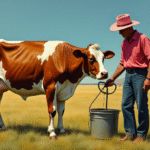Background on Key Figures and Relevance
Friedrich Merz, a conservative politician, is currently leading Germany’s coalition government alongside the Social Democratic Party (SPD). His leadership faces its first significant test in the recent local elections held across Germany’s most populous state, Renania del Norte-Westfalia. The election results highlight growing support for the far-right Alternative for Germany (AfD) party, raising concerns about Merz’s ability to address economic stagnation and voter worries regarding immigration.
Election Results and Implications
Initial projections by the infratest dimap polling firm for ARD indicated that AfD’s support had more than tripled to 16.5% from 2020, positioning them as the third-largest party in Renania del Norte-Westfalia. Merz’s conservative party maintained its position as the strongest, securing 34% of votes, similar to five years prior. Meanwhile, the SPD experienced a decline from 24.3% to 22.5%.
Olaf Lies, the SPD’s state premier in Lower Saxony, expressed concern over AfD’s rising support: “I am observing the AfD results with great worry. This should make us reflect, as it’s a path emerging, and democrats must counteract it.”
Regional Context and Economic Challenges
Renania del Norte-Westfalia, home to nearly a quarter of Germany’s population, spans from the declining industrial heartland of Ruhr to urban centers like Cologne and Düsseldorf, as well as vast rural areas. The region faces economic challenges, including transitioning away from coal mining and steel production.
AfD’s Growing Influence and Merz’s Coalition
The AfD, prioritizing strict immigration policies, seeks to expand its influence from its traditional strongholds in eastern Germany to western regions. A recent INSA poll placed Merz’s conservative party at 25% nationally, equal to AfD, while the SPD lagged behind at 14%.
“This is a great success for us,” stated Tino Chrupalla, co-leader of AfD. “We are a people’s party, and we all have great responsibility towards Germany.”
AfD’s Rise and Controversies
The AfD emerged as Germany’s second-largest party in the February federal elections and gained support from tech billionaire Elon Musk. The German domestic intelligence agency classified AfD as an extremist organization in May, but the decision is currently on hold pending a legal appeal.
Key Questions and Answers
- Who is Friedrich Merz? Friedrich Merz is a prominent conservative politician currently leading Germany’s coalition government alongside the SPD.
- What are the election results in Renania del Norte-Westfalia? The AfD’s support surged to 16.5%, making them the third-largest party, while Merz’s conservative party maintained 34% and the SPD fell to 22.5%.
- Why is this significant for Merz’s coalition? The results highlight growing concerns over economic stagnation and immigration, which Merz’s coalition must address to maintain public support.
- What is the AfD’s agenda? The AfD prioritizes strict immigration policies and seeks to expand its influence from eastern Germany to western regions.
- What controversies surround the AfD? The German domestic intelligence agency classified AfD as an extremist organization, though the decision is currently on hold pending a legal appeal.






